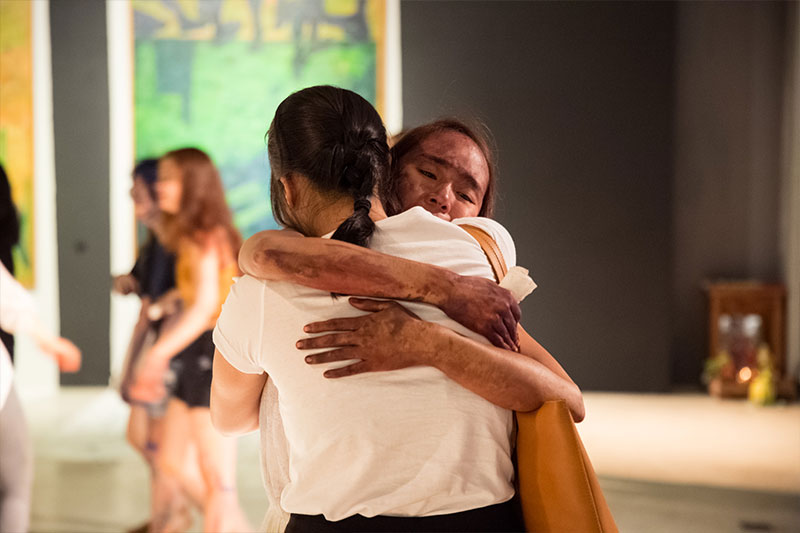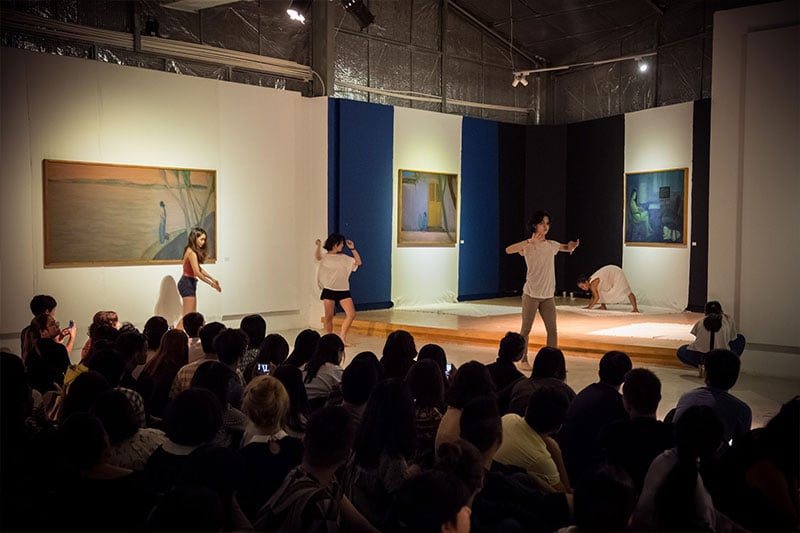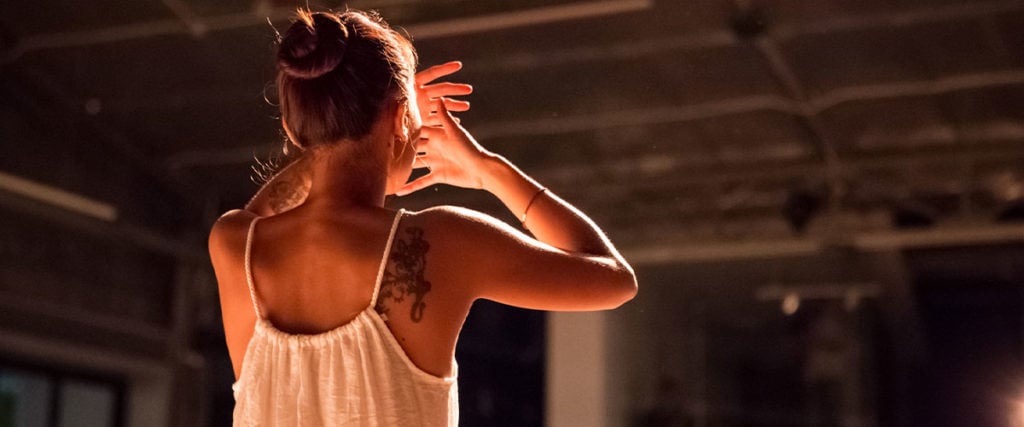Vietnam-based Tricia Nguyen is trying to support people struggling with their mental health with her new art-based initiative Wintercearig. She’s offering them a safe space where they can truly open up via the arts.
Tricia Nguyen has led a diverse life. Growing up in Saigon, she was sent to boarding school in England when she was only nine. An unfamiliar place with unfamiliar people, it wasn’t an easy ride. Returning to Vietnam with her own experiences of depression and anxiety, she found that mental health awareness was lacking and support was just as scarce. So, she came up with the idea for Wintercearig in 2017. Named after an old English word describing the feeling of deep sadness found in the cold and darkness of winter, her initiative puts on workshops and exhibitions that use art in all its forms to help people express themselves. She told Hive Life how she aims to change the landscape for those suffering from mental health issues in Vietnam.

“My father is a well-known artist and my mother was an architectural engineer. She passed away from cancer in 2011, a year after I came back from Vietnam. I didn’t finish my studies as I wanted to be back to see her before it was too late,” she explains of her journey home. Upon returning, she worked in the fashion industry for three years before moving on to study dance. Since then, she’s been an apprentice for the Ho Chi Minh City Symphony Ballet & Opera Company and has also opened a small gallery for her father. But, her already bumpy ride didn’t get any smoother. “During my last semester at the Dance Academy, I was sexually assaulted. It affected me greatly. I considered quitting, but my teacher told me to just pull through, forget what happened and that everything would be fine.” She sought support from therapists and counsellors, “but it was too expensive for me to continue. It was also an uncomfortable situation for me to be in. I felt pressured to talk.”
That was the catalyst for the Wintercearig project. “It occurred to me that there are other ways to cope with mental health issues,” says Tricia. “Expression is difficult for many of us who have social anxiety. I thought back to my childhood when I used to draw and copy my dad’s work for fun. I started to draw and paint again and I experienced a sense of euphoria. I think that’s when the idea for Wintercearig started: that art, in any form, can help us understand and visualise our inner thoughts and struggles,” she elaborates. “It’s one of our ways to voice problems and face them.”

And so that’s what Wintercearig aims to do via its workshops and also its exhibitions – day-long events that take in performances, talks and sessions. “It’s a project to help raise awareness for mental health issues in Vietnam through contemporary arts in fields such as movement, theatre, music and visual arts.” The project acknowledges the issues people are facing and also helps them deal with them. “I aim to create a safe space where people can feel accepted and understood. And also, we aim to help friends and family understand them better through their artistic expressions,” Tricia explains.
Tricia’s work with Wintercearig in Vietnam is pioneering an otherwise largely backwards infrastructure. The country places near the bottom, ranking 13th in the Asia Pacific Mental Health Integration Index, a list documenting the effort taken by 15 countries across the APAC region to implement mental health policies. “The National Mental Health Program in Vietnam only covers a mere 30% of the country’s communes and treatment is only available for a limited number of illnesses. The current options for psychological care and education are highly limited,” points out Tricia. “It’s very difficult to open up and be vulnerable to people about your mental well-being here. You are often judged to be unstable by your choices and emotions. It’s seen as a weakness and that you are not able to deal with your own problems. People will either ignore you or feel sorry for you, but not know how to help.”

Tricia firmly believes that art holds the solution and has the capability to change mindsets. “Art therapy offers a more accessible approach. It removes the first layer of burden such as judgement,” she says. “But for this to be a success story, we have to work hard to support it by having follow-up treatment, care and support from our mental health service providers and our local therapists.”
The next Wintercearig exhibition will be in November 2019 and in the meantime, she is focusing on her workshops. “We are currently working towards a 6-month workshop with art therapists,” says Tricia. “Usually it’s young Vietnamese adults who attend the workshops. However, there is a huge diversity in the people that attend the exhibitions,” she shares proudly. “Since the project started in 2017, I’ve seen that there are many people out there that understand what I was going through and support the change I want to make,” she adds. “They motivate me to continue the work I’m doing to help the people around me.”
You might also like Using Tech to Help Troubled Teens
Related Articles
6 Leading Mental Health Apps Enabling Access to Healthcare and Mental Wellbeing in APAC
6 Mental Health Podcasts to Help You Feel Less Alone
Social Impact Startup Tethr is Tackling the Men’s Mental Health Crisis





